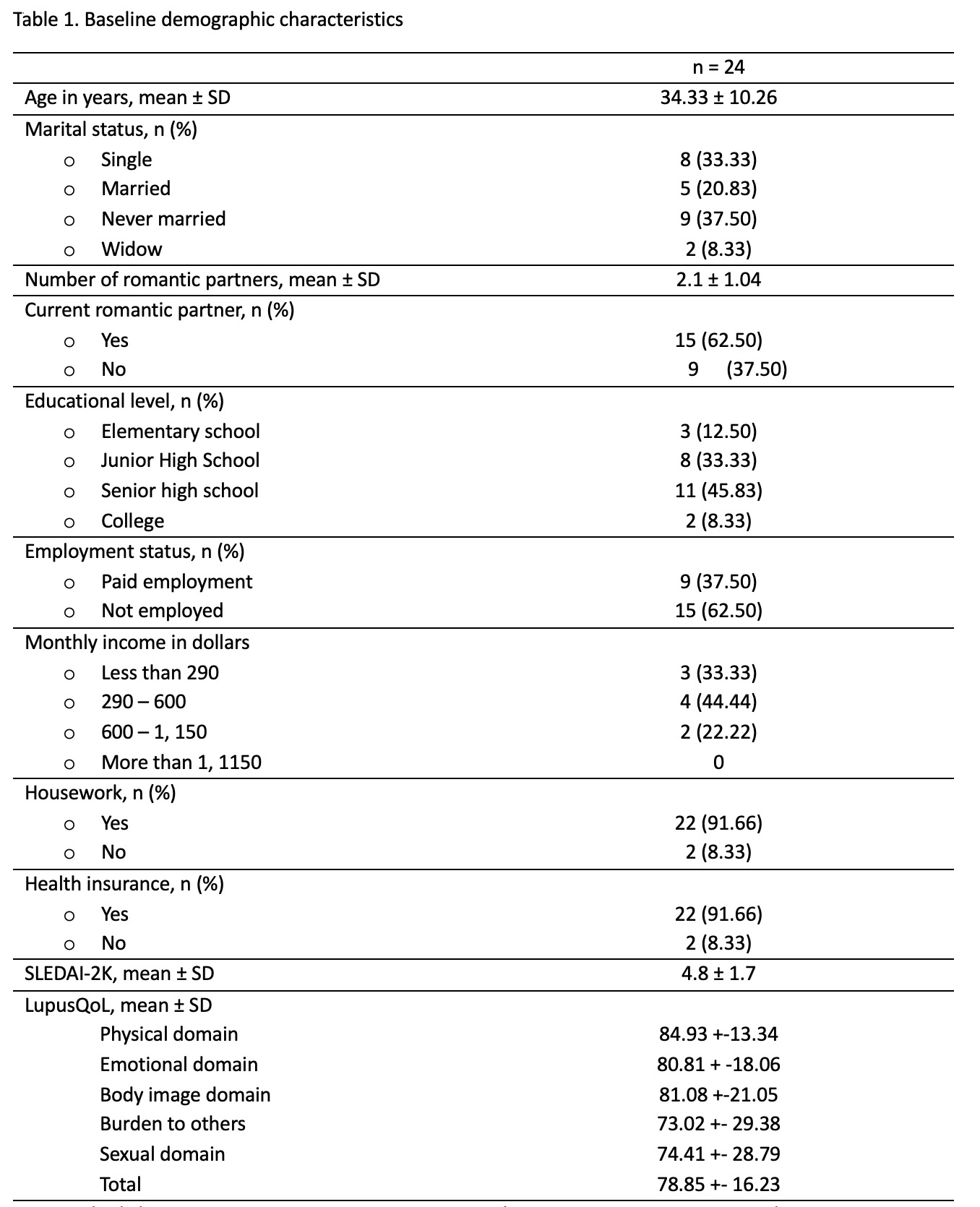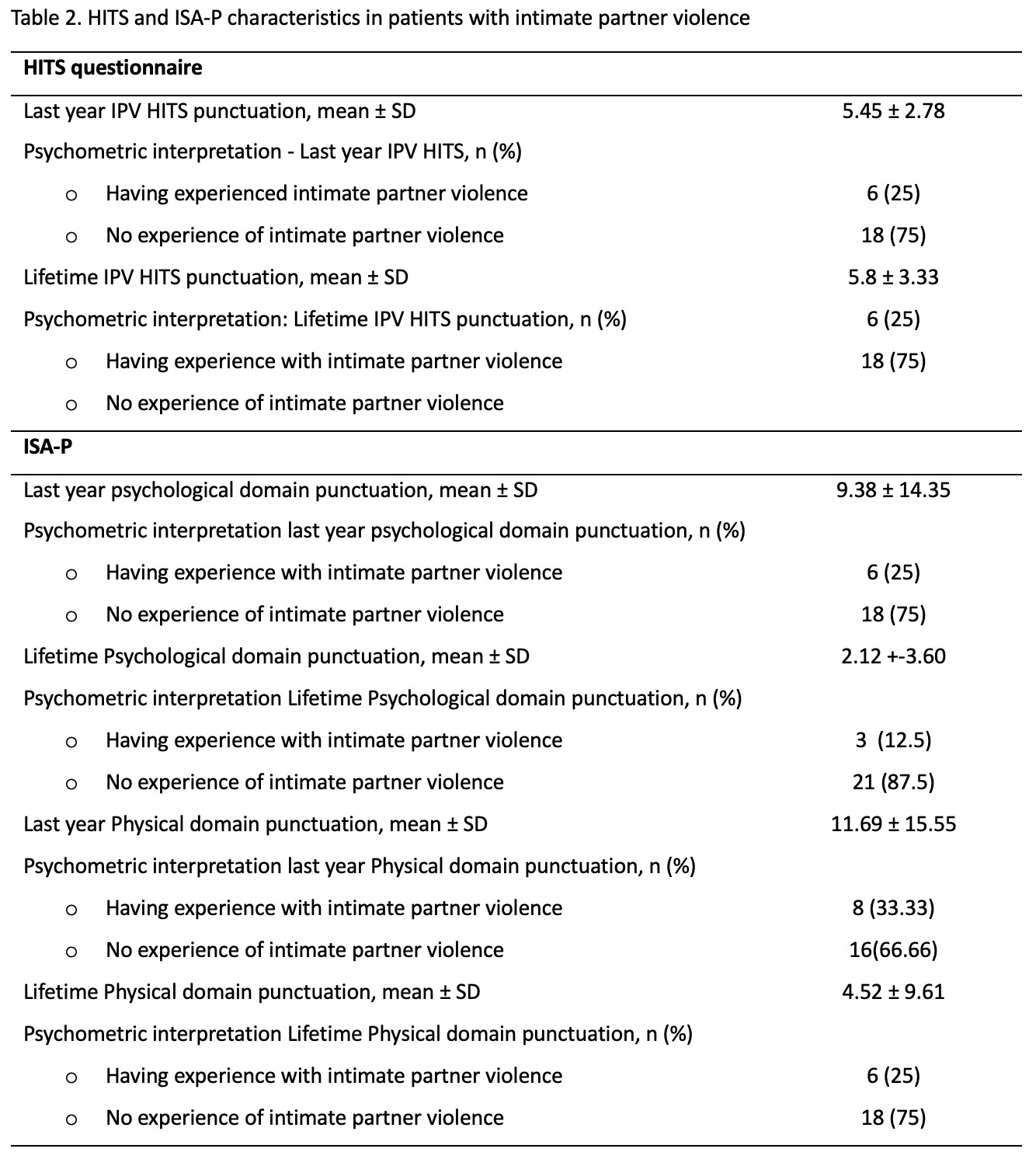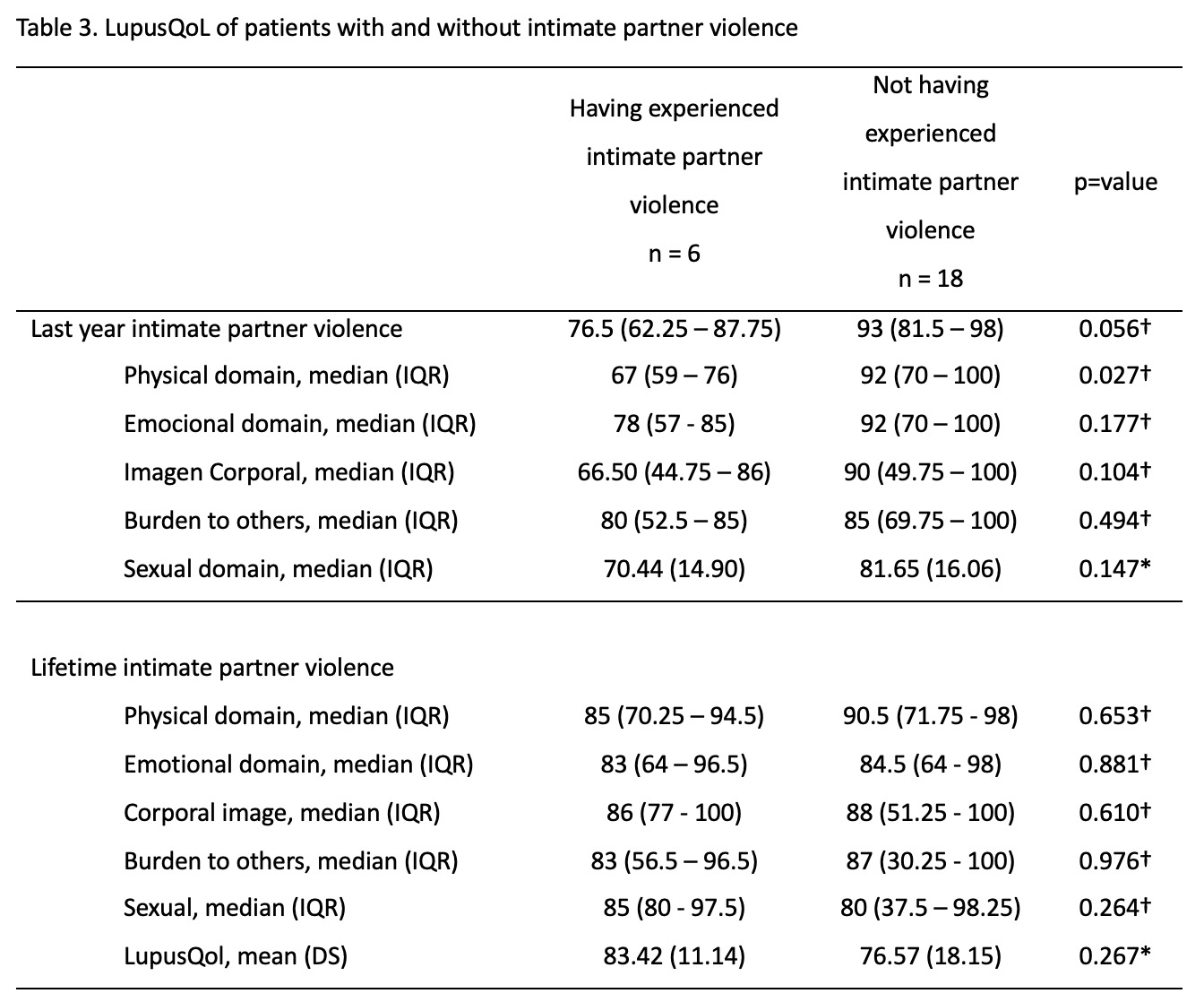Session Information
Date: Tuesday, November 14, 2023
Title: (2019–2038) Patient Outcomes, Preferences, & Attitudes Poster III
Session Type: Poster Session C
Session Time: 9:00AM-11:00AM
Background/Purpose: Systemic lupus erythematosus (SLE) is an inflammatory, multisystemic, chronic disease more prevalent in women and can significantly impact health-related quality of life (HRQoL).1 Sociodemographic factors have been associated with reduced HRQoL in patients with SLE such as experiencing violence particularly intimate partner violence (IPV). IPV includes physical violence, sexual violence, and psychological aggression by a romantic or sexual partner.2 Women with SLE are at risk for IPV and should be evaluated to recognize this problem. The aim of this study was to evaluate the impact of IPV in HRQoL in women with SLE.
Methods: We performed a cross-sectional study from September 2022 to April 2023 in an outpatient rheumatology clinic at Hospital Universitario “Dr. José Eleuterio González” in Northeast Mexico. We included female patients who were ≥ 18 years, met EULAR/ACR 2019 SLE classification criteria for at least 24 weeks, had ≥ 2 in the last 12 months, and had one of the following statuses: romantic relationship, divorced/separated or widowed and single/never married.2
At first, we performed consultations and assessments of the following: disease activity measured by Systemic Lupus Erythematosus Disease Activity Index 2000 (SLEDAI-2K), response to treatment measured by Physician Global Assessment (PhGA), and cumulative damage measured by Systemic Lupus International Collaborating Clinics/American College of Rheumatology (SLICC/ACR) Damage Index (SDI). After consultation, patients were invited to participate, those who accepted were located in a private room to hand a written consent. Patients answered the following questionnaires: IPV, chronic pain syndromes, and quality of life. Participants were required to answer the Spanish version of the following questionnaires: Hurt, Insulted, Threatened with harm, and Screamed at (HITS), Index of Spouse Abuse Physical Scale (ISA-P) and Lupus Quality of Life (LupusQoL).
Results: From October 2022 to April 2023, 24 patients were included. The baseline demographic characteristics are listed in Table 1. Six patients had experienced IPV. IPV, HITS and ISA-P results are seen in table 2 and 3.
Conclusion: Data about IPV in women with SLE in our country are missing. IPV prevalence in our study was 33.33% higher than reported by Sardinha L. et al 2018 which evaluated violence in women without autoimmune diseases at 16%. The analysis performed between patients who were victims of IPV and quality of life showed a statistical trend in patients having experienced IPV in the last year in the emotional domain of Lupus QoL, but this was not observed in women who experienced IPV in their lifetime. With these results, we concluded that IPV in women with SLE has an impact in the emotional domain on the quality of life of Lupus (HR-QoL).
1.- Coll CVN, et al. Intimate partner violence in 46 low-income and middle-income countries: an appraisal of the most vulnerable groups of women using national health surveys. BMJ Global Health 2020;5: e002208.
2.- Sardinha L, Maheu-Giroux M, Stöckl H, Meyer S, García-Moreno C. Global, regional, and national prevalence estimates of physical or sexual, or both, intimate partner violence against women in 2018. Lancet 2022; 399: 803–13.
To cite this abstract in AMA style:
Campos-Tinajero E, Serna-Peña G, Esquivel-Valerio J, Castillo-de la Garza R, García Arellano G, Gamez-Siller P, Aguilar-Rivera E, Gonzalez-Garcia P, Galarza-Delgado D. Intimate Partner Violence Is Associated with a Poorer Health-Related Quality of Life (HR-QoL) in Women with Systemic Lupus Erythematous [abstract]. Arthritis Rheumatol. 2023; 75 (suppl 9). https://acrabstracts.org/abstract/intimate-partner-violence-is-associated-with-a-poorer-health-related-quality-of-life-hr-qol-in-women-with-systemic-lupus-erythematous/. Accessed .« Back to ACR Convergence 2023
ACR Meeting Abstracts - https://acrabstracts.org/abstract/intimate-partner-violence-is-associated-with-a-poorer-health-related-quality-of-life-hr-qol-in-women-with-systemic-lupus-erythematous/



